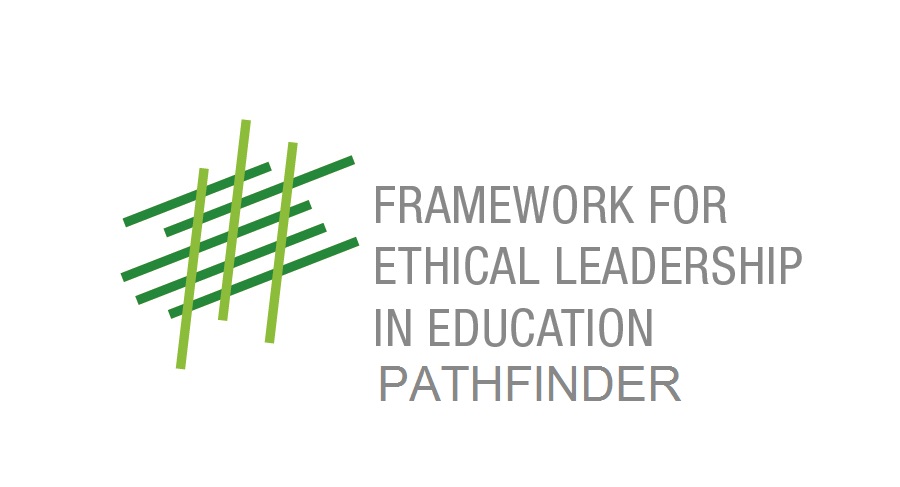Curriculum
Strategic Curriculum
At Holderness Academy and Sixth Form College, we aim to develop the Holderness Learner to be: an Explorer, a Scholar, a Leader, and a Collaborator through our core values of being Aspirational, Resilient, Respectful and Kind. These are at the heart of everything we do. We set high expectations to ensure every learner excels across all aspects of academy life.
Our intention is to ensure learners make exceptional progress and that the curriculum removes any potential barriers to learning, irrespective of social background, culture, race, gender or sexuality, differences in ability and disabilities.
We want our learners to leave with knowledge and skills which will not only create excellent life opportunities and enable them to be successful in whatever career they choose but will also prepare them exceptionally well for life beyond the academy and thus fulfilling our vision:
To inspire and empower young people to make a positive difference today, ready for tomorrow.
At Holderness Academy and Sixth Form College, learners will:
-
Have a curriculum that can be accessed by all, regardless of ability or social-economic background
-
Experience a broad, deep and knowledge rich curriculum;
-
Develop as a Holderness Communicator, to create active readers, skilled writers and confident speakers
-
Be numerate; building and link numeracy skills across all relevant subjects
-
Have high expectations for their behaviour and achievement;
-
Enhance their cultural, social, moral, mental and physical development;
-
Become a Holderness learner prepared for progression
Key stage overview
-
Key Stage 3 - Our three year Key Stage 3 curriculum provides learners in Years 7, 8 and 9 with an opportunity to accelerate their progress from Key Stage 2 by building on their skills and knowledge gained in the primary phase of their education. We recognise transition arrangements and communication with our primary colleagues are essential to avoid the ‘secondary school dip’ in progress in Year 7 and being part of a cross phase Trust allows us to learn from the skills of our primary colleagues. Our curriculum provides a critical breadth and balance to further develop skills and knowledge.
-
Key Stage 4 - The flexibility of the Key Stage 4 curriculum provides opportunities for a bespoke curriculum to meet the needs and interests of individual learners. Our curriculum provides an opportunity for learners to follow a curriculum pathway that is informed by where they have come from in their academic life and where they aspire to be. Learners study a range of core subjects but also have the opportunity to specialise in a range of option subjects. In some cases we also offer external Vocational options for those learners who would benefit the most.
-
Key Stage 5 - We believe that all learners from Holderness Academy should be given the opportunity to follow a curriculum programme at Key Stage 5 that is appropriate to their needs and abilities, and we take into consideration the high level of learners that wish to progress to Higher Education. We also understand that an academic or part academic pathway may not be the right option for all post-16 learners, and is explicit about entry requirements - recognising the challenge presented by individual programmes of study.
Experience a broad, deep and knowledge rich curriculum
Our curriculum promotes excellence and high aspiration at all stages throughout the learners’ journey at Holderness Academy. At Key Stage 3, 4 and 5 our subject and extended curriculum are designed to be broad and balanced, giving our learners an enriched programme with a range of different experiences. This is delivered through a skill and knowledge-based curriculum with content sequenced towards ambitious end goals for all at the end of each year, ensuring they have a deep understanding within and across a range of subjects for them to continue to build upon over time. Rosenshine’s Principles of instruction will form the basis of our approach to teaching and learning. We have chosen Rosenshine’s Principles because they are evidence informed and promote a shared understanding of the characteristics of effective teaching and learning. This makes learning engaging and enjoyable. There are many opportunities in lessons to model, practice independently and retrieve previous learning so that knowledge is fully embedded and can be applied.
Our curriculum, including our PSHE programme, dedicated lessons of ARRK (Aspirational-Resilience-Respectful-Kind), tutor programme, drop-down days, assemblies, guests and visitor agenda actively promotes learners Social, Moral, Spiritual and Cultural education (SMSC) and a commitment to British Values.
Religious Education is delivered within the Philosophy and Ethics curriculum and provides an opportunity for learners to debate key issues for life in modern society as well as the statutory requirements of Relationships and Sex education and other aspects of managing personal safety and risk. Learners are provided with an opportunity to demonstrate skills and attitudes in line with modern citizenship, the schools’ ethos and commitment to promoting a positive contribution to a pluralistic society. Our enrichment programme ensures learners have access to appropriate Impartial Careers Information Advice and Guidance (ICIAG Statutory Guidance December 2017).
Be literate and numerate
The development of active reading, skilled writing and confident oracy through our Holderness Communicator initiative is a key part of our curriculum. We recognise how vital it is for our learners to build confidence in communication skills for their time at the Academy and beyond. We ensure learners have opportunities in all subjects to develop these skills through Disciplinary Literacy. Learners who arrive at the Academy with below expected maths skills will be the focus for incisive intervention to enable them to catch up quickly. The focus on literacy and numeracy will develop the Holderness Learner and allow them to access their next stage in learning. As we strive to be a ‘reading school’ learners are exposed to reciprocal reading skills across the curriculum; training their brain to read through summarising, clarifying, questioning, and predicting. Year 7 and 8 students follow the Accelerated Reading programme utilising time in Maths and Science lessons to read personalised ZPD books. A weekly library lesson provides the opportunity to complete AR quizzes to become word millionaires. Subject staff encourage students to read widely around their subject with a wider reading shelf in each classroom. Students in Years 7-9 are assessed for reading ages twice a year.
Have high expectations for their behaviour and achievement
We are an inclusive Academy and we have high aspirations for all. Our behaviour policy ensures that learners know that positive behaviour will be rewarded and poor decisions will have consequences. We teach our learners the importance of our core values to be: aspirational; resilient; respectful; kind.
Enhance their cultural, moral, social, mental and physical development
We aim is to develop a curriculum that moulds the Holderness Learner to be respectful and to ensure that they are prepared for life in modern Britain. Learners are encouraged to show that learning is linked, where possible, to real world experiences. Learners are encouraged to participate in a range of sporting, cultural, community and charitable activities. Wherever possible, we develop our strong links with the community to enhance their learning with the use of business partners.
Become a Holderness Learner prepared for progression
A clear focus on the Gatsby benchmarks from Year 7, ensures our learners follow their Holderness Learner journey to secure their progression pathway beyond the Academy. We continually strive to develop the experiences offered to our learners.
Measuring Impact
-
Builds on prior knowledge - Our curriculum approach in most cases is to sequence the content of knowledge towards ambitious end goals, this is because the concept of building on prior knowledge often relies on the understanding of what has come previously and what will come next. Effective sequencing can also provide a way of embellishing and unifying what may otherwise seem like disconnected fragments of knowledge. To create a sense of coherence for the discipline that we teach.
-
Standardised Assessment - As part of a continuous process to improve the outcomes for all learners at Holderness Academy and Sixth Form College, our learners in Years 7, 8 and 9 take part in standardised assessments for both English (writing and comprehension), and Mathematics in the autumn and summer term. The summative and formative nature of these assessments means that not only can we measure what is being learnt but we can also make inferences that are formative. The formative aspect enables us to plan the future curriculum for our young learners – covering both identified gaps in prior knowledge and skills and indicating where we can potentially enhance skills and knowledge that some learners already possess that wouldn’t ordinarily be expected.
-
Formative Assessment - We aim is to ensure that all learners retain and embed key skills and knowledge in every subject at each key stage. Using Rosenshine’s Principles, each lesson is structured to review and practice previous learning to check cognition through high frequency low stakes assessment. This approach has two key benefits; it allows learners to track their progress and it allows teachers to support learners by identifying gaps in learning. This approach to assessment drives progress and learning. Assessment must remain purposeful, focused, and manageable for staff; as well as meaningful and motivating for learners. Our quality assurance processes allow us to monitor, evaluate and develop this.
-
Curriculum Plan/Overview – Time is allocated appropriately to the needs of the curriculum to ensure in depth delivery and to develop and embed skills and knowledge.
Curriculum Evaluation and Quality Assurance
The curriculum is kept under constant review by School Leaders, Governors and the Trust to ensure it meets the vision of the school and the Trust and more importantly leads to successful outcomes for learners.
The following data sets are analysed annually to ensure the Strategic Curriculum at Holderness Academy and Sixth Form College meets the needs of its learners:
-
Recruitment to Year 7 – Does the curriculum meet the needs of the local community to inform parental choice of secondary school? Does it allow for a successful transition from Year 6 content?
-
First Choice Pathways Allocations – is our provision and guidance ensuring that learners can make an informed decision which is relevant to their needs, and are we financially able to meet learner preference?
-
Parental Communication – Have we communicated our curriculum objectives effectively to ensure that parents, as key stakeholders, are confident in the school’s curriculum provision?
-
Achievement – Rigorous and robust analysis of internal and external progress and attainment data to ensure the curriculum appropriately provides for all groups of learners, indicates a positive social mobility trajectory and meets national performance measures at all Key Stages.
-
NEET Figures – Independent figures provided by the Local Authority to measure the progression of young people onto appropriately challenging education, employment or training post-16.
-
KS5 Retention Analysis – To ensure that the curriculum post-16 meets the needs of learners to ensure course completion to a high standard.
-
Progression Data – To measure the progression of learners on to appropriate programmes for the next stage of their learning or career.




